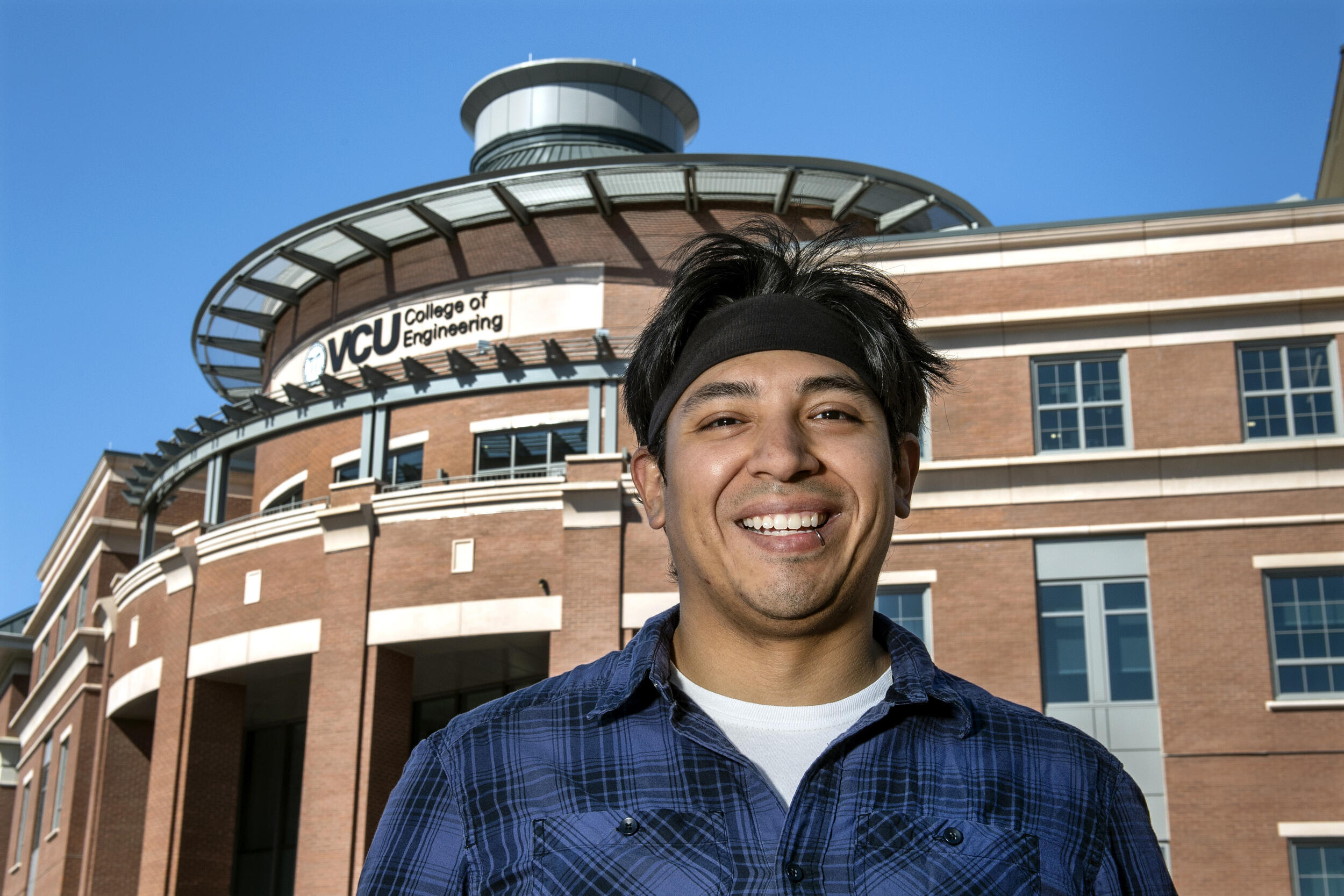
May 4, 2022
Class of 2022: Jesus Guerrero overcame early high school struggles to thrive in college
Share this story
Jesus Guerrero took a circuitous route to dental school, which the 32-year-old starts this summer at Midwestern University in Arizona.
First, he had to learn English, dabble in art, pick up the guitar, tour in a band, join the U.S. Navy, and earn a bachelor’s degree in biology — with a concentration in neuroscience — and a second one in computer science. He received the former from the University of Texas San Antonio in 2018 and will receive the latter this month from Virginia Commonwealth University.
Ironically, Guerrero had such bad grades in high school that none of his family thought he would get his degree.
“As it turns out, I have pretty severe Attention Deficit Hyperactive Disorder and Obsessive Compulsive Personality Disorder,” Guerrero said. “It’s hard for me to maintain focus on things that are uninteresting, but when I find something I really truly enjoy, I get in that hyperfixation mode. But then I get to a point where I have to know everything about whatever it is that I’m learning/doing.
“Since I’ve been addressing it as such and having learned different coping mechanisms for the whole thing, this second go-around at college was much more organized, more streamlined — so less trying to do a bunch of stuff outside of my major all at once — and more fruitful for learning what I wanted to learn.”
After receiving his first bachelor’s degree in 2018, Guerrero started applying to dental schools and worked as a lead assistant in an orthodontist’s office in Richmond, Virginia. Having worked in the dental field on and off for 11 years — in the Navy, he served in Sicily at the Naval Air Station Health Clinic as the lead orthodontic assistant in the Dental Wing, and at the Naval Health Clinic Quantico as a supervisor for two satellite clinics and an onboarding instructor at the main clinic — he wanted to do and learn something new.
While his ultimate goal was still to attend dental school, Guerrero always found computers and programming interesting. “So I decided to give computer science a shot,” he said. “I found out through some friends that there were projects that tied the MCV Campus with the [VCU] College of Engineering, which made my choice to go to VCU a simple one. This was a decision I made back in November of 2019, and it was one of the best decisions I’ve ever made.”
He started the computer science track at VCU in spring 2020 to supplement his overall knowledge with skills that he could merge into his dental experience.
While here, he had a yearlong internship with the Army’s Night Vision and Electronic Sensors Directorate as a research and development software engineer; joined Theta Tau, the professional engineering fraternity; started a teacher’s assistant role for computer science’s introduction to programming course; co-founded the Web Development Club at VCU; and developed Augmented and Virtual Reality Applications for Surgical Planning and Training for a research team in VCU’s Vertically Integrated Projects program.
He also conceptualized a system for “Robotic or Facilitated Dentistry through Human Computer Interactions.”
“The idea behind this possible approach in dentistry is to use machines or robots as a way to remove the assistant and doctor from being directly around the patient’s space,” Guerrero said. “This would alleviate the dentist and assistant from needing to crowd the oral cavity as well as help with visualization and ergonomic positioning during awkward or hard-to-reach tooth structures. All this could theoretically be achieved through analog movements of the instruments via a rig similar to a [Computer Numerical Control] machine would be set up except through commands being sent and received and sent in real-time.”
Prior to the official start of dental school in the fall, Guerrero will spend this summer in an informal semester for students eager to conduct research in the dental field to start getting their hands on ongoing projects.
“These programs tend to be competitive,” he said, “and although I don’t consider myself a competitive person, I do consider myself a very eager one. If I could have started the day I gained acceptance into the dental medicine program, without skipping a beat, I would have. Once I arrive, the goal is to jump on board with a proposal I will be pitching to the dean of research at Midwestern University.
“My ideal time to start this process is immediately after my final exam ends. I don’t want to waste any time.”
Subscribe to VCU News
Subscribe to VCU News at newsletter.vcu.edu and receive a selection of stories, videos, photos, news clips and event listings in your inbox.







